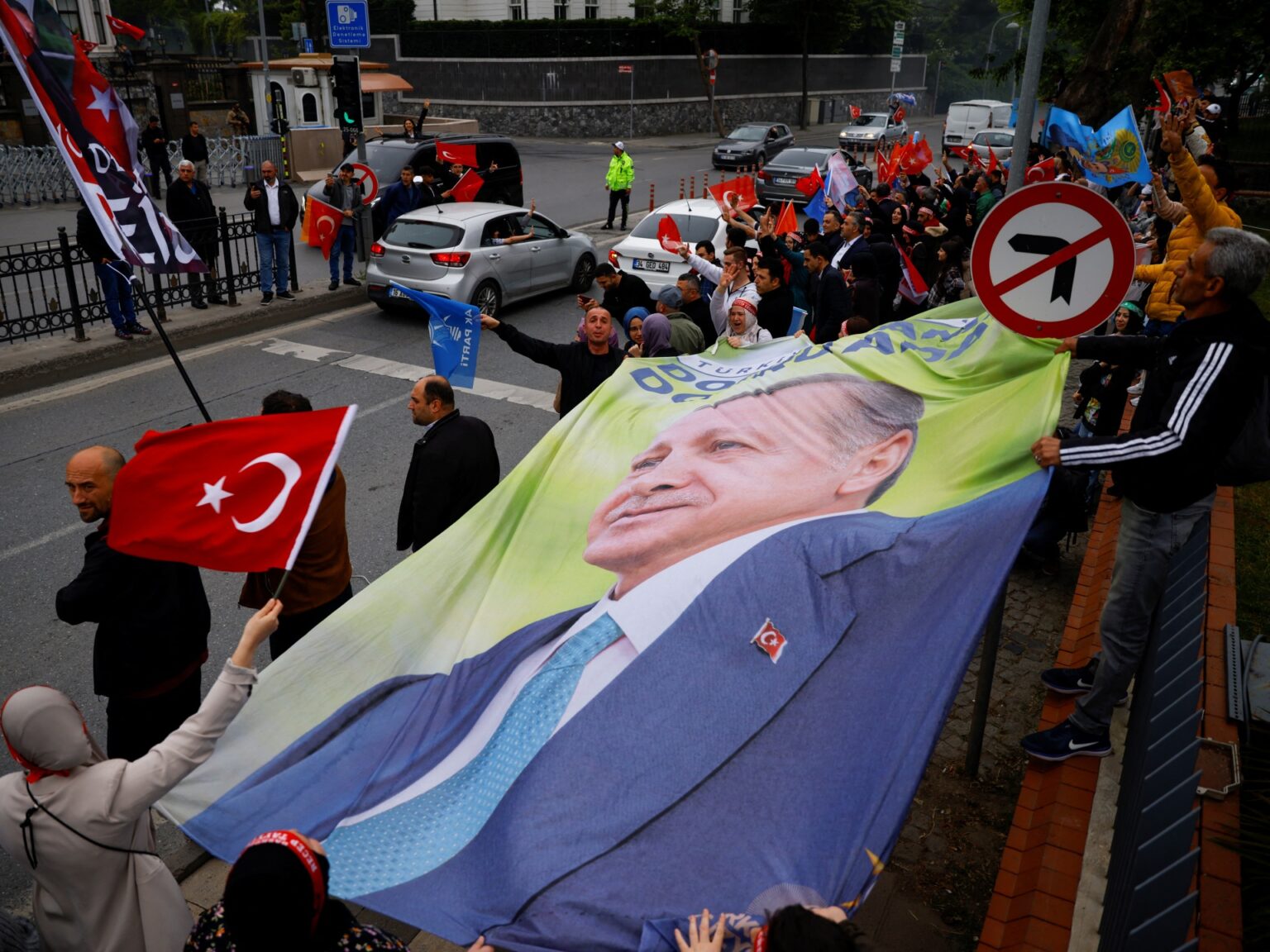Global Courant 2023-05-29 18:34:46
Istanbul, Turkey – Following his third presidential victory, Recep Tayyip Erdogan will sit down at his desk to address a host of immediate issues facing Turkey.
The president will focus on the economy and how to handle the country’s ongoing financial crises.
Erdogan successfully diverted attention from a cost-of-living crisis during the election campaign. He significantly increased pensions and salaries, discounted household energy bills, while shifting the debate to issues of security and family values.
But Turkey’s economy is in bad shape and in his victory speech on Sunday night, Erdogan highlighted inflation as the main problem facing the country.
“Resolving the problems caused by price increases and inflation is the most urgent topic of the coming days,” he told supporters outside the presidential palace in Ankara.
“Solving it is not difficult for us. Weren’t we the ones who proved this during my time as Prime Minister?” Erdogan added, referring to his 11-year stint as prime minister before becoming president in 2014.
Inflation peaked at 85 percent late last year and fell to 44 percent last month, although independent economists dispute the official figures, saying it is 105 percent.
Interest Policy
The value of the Turkish currency, which the government had protected by selling foreign exchange reserves, is falling.
The lira reached a record low of 20.06 against the US dollar on Monday morning after losing nearly 80 percent of its value over the past five years.
Many economists blame this largely on Erdogan’s unorthodox policy of cutting interest rates, which have nearly halved since late 2021, as a means of fighting inflation.
Timothy Ash, a Turkey expert at BlueBay Asset Management in London, said the currency’s current level was “simply unsustainable”.
He added that the central bank has “blown reserves to keep the lira relatively stable ahead of the election to ensure an Erdogan victory… With limited foreign exchange reserves and hugely negative real interest rates, pressure on the lira is high ” .
But Emre Peker, Europe director at the Eurasia Group, said Erdogan is likely to see Sunday’s victory as a confirmation of his economic policies, which the president says will make Turkey’s economy stronger in the long run.
“Despite the highest inflation we have seen in years, despite the significant pressure on the lira, despite the high unemployment and people’s concerns, winning the election will make him feel quite justified,” Peker said.
Foreign influx
Peker added that Erdogan was motivated by a “desire to wean Turkey from its general economic dependence on Western partners.”
Turkey has been helped in recent months with money from Russia and the Gulf states. Qatar, Saudi Arabia and the United Arab Emirates have deposited billions of dollars in Turkey’s central bank or set up multibillion-dollar investment funds.
Russia has deferred payments for natural gas and provided billions to Turkey’s first nuclear power plant.
“The economy relies on financing from Russia, investment from the Gulf and that is an area that Erdogan will continue to focus on,” Peker said.
He added that the next three to four months would be relatively quiet for the economy as summer tourism revenues flow, a weakening lira makes exports more competitive and domestic energy demand is low.
But by the fall, Erdogan may be under pressure to change his economic policies.
“The current economic dynamism will not be able to meet Turkey’s needs,” Peker said. “Turkey will need more foreign inflows to manage its foreign payments and that is difficult to sustain given negative interest rates.”
Western relations
Another subject requiring the president’s urgent attention at the start of his five-year term is Turkey’s relations with its Western partners, in particular the question of Sweden’s accession to NATO.
Turkey and Hungary are the only NATO members to block Stockholm’s bid to join the defense alliance, made in the wake of Russia’s invasion of Ukraine last February.
Sweden and the US have said they expect the membership problem to be resolved by the time NATO leaders meet in Lithuania in July.
Less than two weeks ago, Erdogan reaffirmed his opposition to Sweden’s accession. “We are not ready for Sweden at the moment,” he said, referring to Ankara’s concern over Stockholm’s stance on what Turkey has labeled as “terrorist” groups.
“If Erdogan continues to delay the approval, I expect a major crisis in relations with the West,” Ash said, adding that he expects a compromise on Sweden’s accession.
Erdogan “took as much political capital as possible from these pre-elections, now that he has won there is only a downside by delaying the inevitable. So I expect Sweden to get NATO membership at the NATO summit,” said Ash.
Disputes with the West are probably also about human rights.
In his victory speech, Erdogan showed no sign of compromise over those considered “terrorists” by his government, saying he would not release Selahattin Demirtas, a leading Kurdish politician imprisoned since 2016.
The European Court of Human Rights ruled in 2020 that Turkey should release Demirtas, saying his detention was for political reasons, but the Turkish government claims Demirtas has ties to the Kurdistan Workers’ Party (PKK), which has waged a war against the Turks has conducted. state since 1984.
The PKK is considered a “terrorist” group in Turkey, the European Union and the US.
On the domestic front, Erdogan faces the daunting task of rebuilding southern provinces that were hit by earthquakes in February that killed more than 50,000 people.
The cost of the disaster has been estimated by the United Nations Development Program at more than $100 billion. Erdogan, who was supported by most of the region in the election, has promised to build 319,000 houses within a year.
Given the large showing of nationalist voters in the elections and the widespread desire for Syrians to be repatriated to their homeland, Erdogan will also be under pressure to show signs of returning refugees.
“It is our duty to meet the expectations of our citizens on this issue in ways and methods that are befitting our country and our nation,” he said on Sunday night.
Turkey’s migration agency has said about 554,000 Syrians have been returned and Erdogan said another million will go to Syria within a year as new homes are built.




